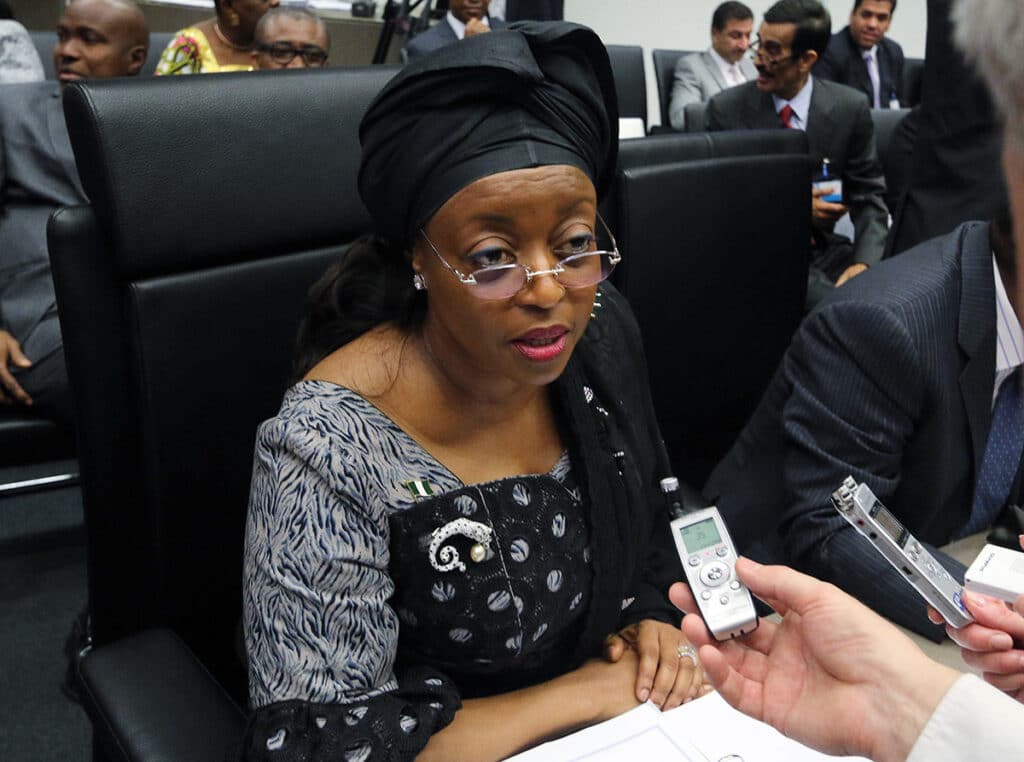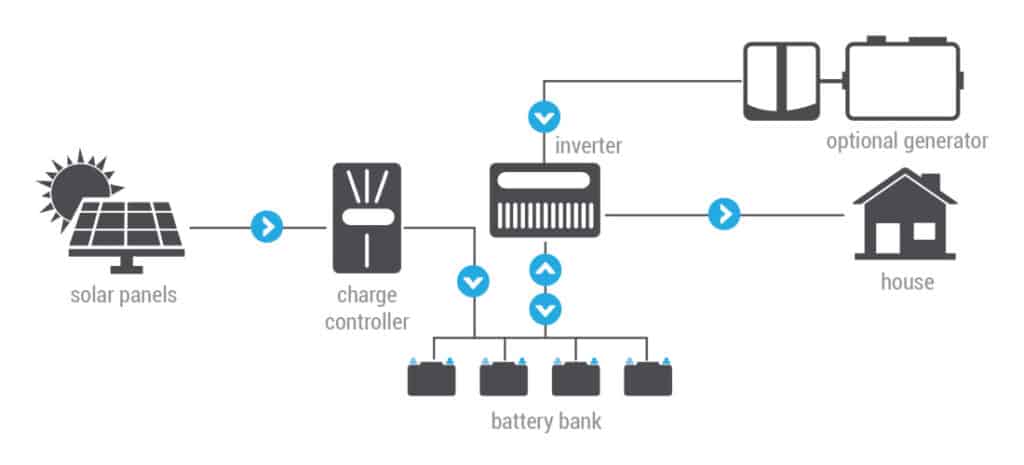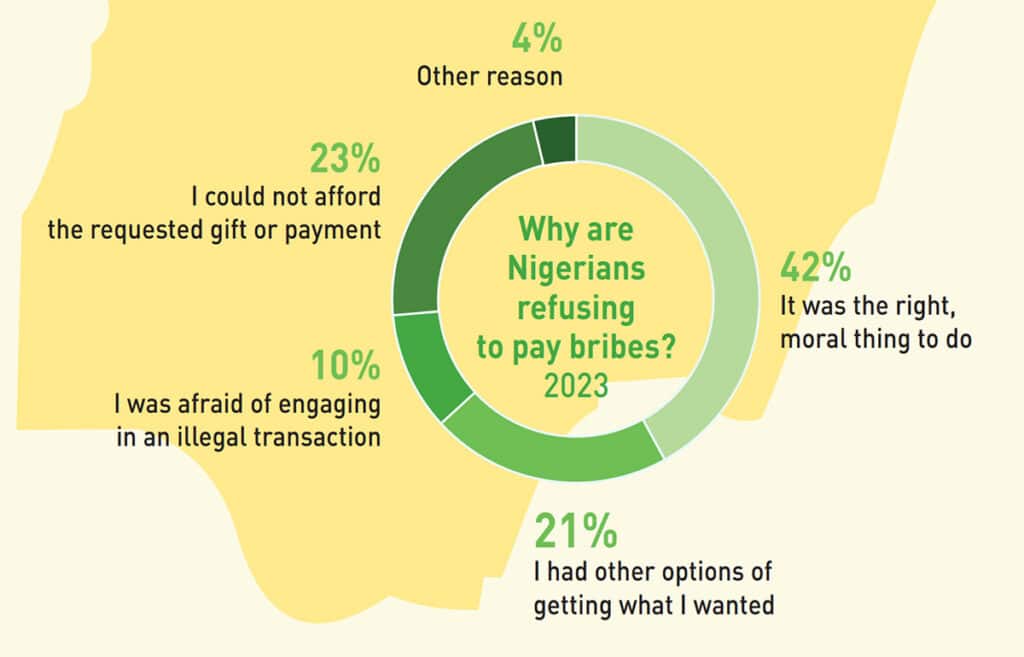Volcanoes are erupting in The Philippines, but on-fire Australia received some welcome rain. The Iran war cries have been called off and The Donald’s military powers are about to be hamstrung by the Senate. Meanwhile, his impeachment trial is starting, and we’re all on Twitter for a front-row seat.
What Could Go Right? Poetic Justice
Millions seized from an alleged bribery scheme involving Nigeria’s ex-oil minister will fund a solar-powered electrification project.
This is our weekly newsletter, What Could Go Right? Sign up here to receive it in your inbox every Thursday at 5am ET. You can read past issues here.
Poetic Justice
Millions in seized assets linked to the suspected bribery of Nigeria’s ex-oil minister will now be poured into a project to bring renewable-powered electricity to the West African country.
Last week, the United States Department of Justice announced that it had reached an agreement with Nigeria to send back over $50 million in funds, collected from the forfeiture of assets such as a luxury apartment in New York and a 65-meter superyacht called the Galactica Star—the bounty of an alleged bribery scheme between Diezani Alison-Madueke, Nigeria’s previous Minister of Petroleum Resources and the first female president of the oil alliance OPEC, and two businessmen.

According to court documents, from 2011 to 2015, during Alison-Madueke’s tenure as oil minister, these businessmen conspired to bribe her in exchange for using her influence to “steer lucrative oil contracts” to their companies.
The money was recovered by the US Kleptocracy Asset Recovery Initiative, a team, launched in 2010, that is dedicated to forfeiting and repatriating proceeds of foreign corruption back to their countries of origin, for the benefit of the people there.
Nigeria has the world’s largest numbers of people without access to electricity, according to the World Bank. Nearly half of the population, or 90 million people, are cut off from the electric grid. The problem is worse in rural areas, where three-quarters are.
President Bola Tinubu, the German outlet DW reports, “has taken on various initiatives aimed at bridging the electricity gap and introducing economic activities in rural communities” since he took office in 2023.
About $50 million of the recovered funds will go into one of those initiatives. The project, monitored by the World Bank, provides solar-powered electrification systems to households and small-to-medium enterprises. One such system is solar hybrid mini grids, essentially solar panels plus a battery bank that are useful for rural areas because they can piggyback on top of existing electricity distribution networks.

Some remaining cash from the repatriation agreement, nearly three million, will go into counter-terrorism efforts.
Government corruption remains rife in Nigeria, although there have been some small improvements in its everyday occurrence. A 2024 survey jointly conducted by Nigeria’s National Bureau of Statistics and the United Nations found that the digitization of public services had reduced contact between citizens and public officials like utilities and police officers, with millions less being paid out as bribes since 2019.
More Nigerians are also refusing to pay bribes and reporting when bribery has occurred, and its practice is becoming less socially acceptable, although its prevalence in the private sector has jumped in recent years.

As for Alison-Madueke, the ex-oil minister, she is also facing charges of bribery in Britain and money laundering in her native Nigeria, where in 2022 courts allowed the Nigerian anti-graft agency to seize houses, cars, and jewelry from her and her associates.
The US agreement is the first repatriation of assets from outside the country linked to Alison-Madueke. It’s not the first between the US and Nigeria, however. Millions were sent back in 2022 as well as 2020, reports the BBC.
By the Numbers
1M: The tons of carbon emissions that Chile has reduced by restoring forests there. Humans release about 40 billion tons into the atmosphere annually.
13%: The year-on-year drop in greenhouse gas emissions from power generation in the European Union.
79%: The drop, between 1990 and 2021, in global deaths from diarrheal diseases like norovirus in children under five. Diarrheal diseases are still a leading killer, however.
Quick Hits
⚡ Meet the micro-reactor, baby nuclear reactors the size of a shipping container that are being developed to replace diesel and gas generators in remote locations.
🧠 Using lab-grown human mini-brains, research has uncovered a connection among head trauma, herpes, and Alzheimer’s. Inflammation from something like a concussion may awaken a latent herpes infection, eventually leading to Alzheimer’s later in life.
🪖 Veteran homelessness in the US reached a record low in 2024, dropping 7.5 percent since 2023 and over 55 percent since 2010.
⛔ Thailand, one of the several Southeast Asian countries paid to accept plastic waste from developed nations, has banned such waste’s import. It remains to be seen if the ban will be well enforced, however. Plastic waste there has often been burned instead of recycled.
🫁 Current tests for asthma cannot differentiate among its subtypes. A new nasal swab, however, can diagnose several different subtypes, helping doctors match patients with the best treatment for them.
📉 There has been a 97.5 percent reduction in sleeping sickness cases over the past two decades, along with a transformation of the disease’s treatment protocol, which used to be arsenic-based and would sometimes kill its patients. Still, the world’s remaining cases have been hard to stamp out.
🖼️ The Netherlands’ three panoptic “dome prisons” are being repurposed as arts venues as part of an attempt by the Dutch government to reduce its prison population.
👮 Minneapolis has agreed to overhaul the city’s police training and use-of-force policies, building on changes already made in the wake of the murder of George Floyd in 2020.
🤰 New York has become the first state in the US to offer paid leave for prenatal care. Pregnant workers are now entitled to at least 20 hours of paid leave to attend prenatal medical appointments.
👀 What we’re watching: It’s what everyone else is watching, too: the Israel-Hamas ceasefire deal, set to begin on Sunday.
💡 Editor’s pick: Should the “right to be forgotten” apply to select criminal cases? Some newspapers in the US, with careful consideration, are taking down articles or excising names in stories about minor criminal offenses.
TPN Member Originals
(Who are our Members? Get to know them.)
- Skilled immigration is good | Slow Boring | Matthew Yglesias
- Facebook ends its fact-checking program | Tangle | Isaac Saul
- When Jimmy Carter proposed his own DOGE | Faster, Please! | James Pethokoukis
- TikTok is harming children at an industrial scale | After Babel | Jonathan Haidt
- The character-building tool kit | NYT ($) | David Brooks
- Charting a realistic future for Syria | The International Correspondent | Faisal Saeed Al Mutar
- You’re going to die. That’s a good thing. | The Atlantic ($) | Arthur C. Brooks
- In the face of disaster, a new age of solidarity | Lucid | Ruth Ben-Ghiat
 Francis Fukuyama on the new leaderless global order | GZERO | Ian Bremmer
Francis Fukuyama on the new leaderless global order | GZERO | Ian Bremmer Why do we refuse to learn from history? | Just Asking Questions | Tyler Cowen
Why do we refuse to learn from history? | Just Asking Questions | Tyler Cowen The first annual progress conference | Roots of Progress | Jason Crawford and more
The first annual progress conference | Roots of Progress | Jason Crawford and more



Excellent post! The tip about discussing with lenders is extremely helpful. I’ve used this strategy effectively, and it’s made a big difference. I also wrote a guide on how to discuss successfully, which might help your readers. Keep up the great work!